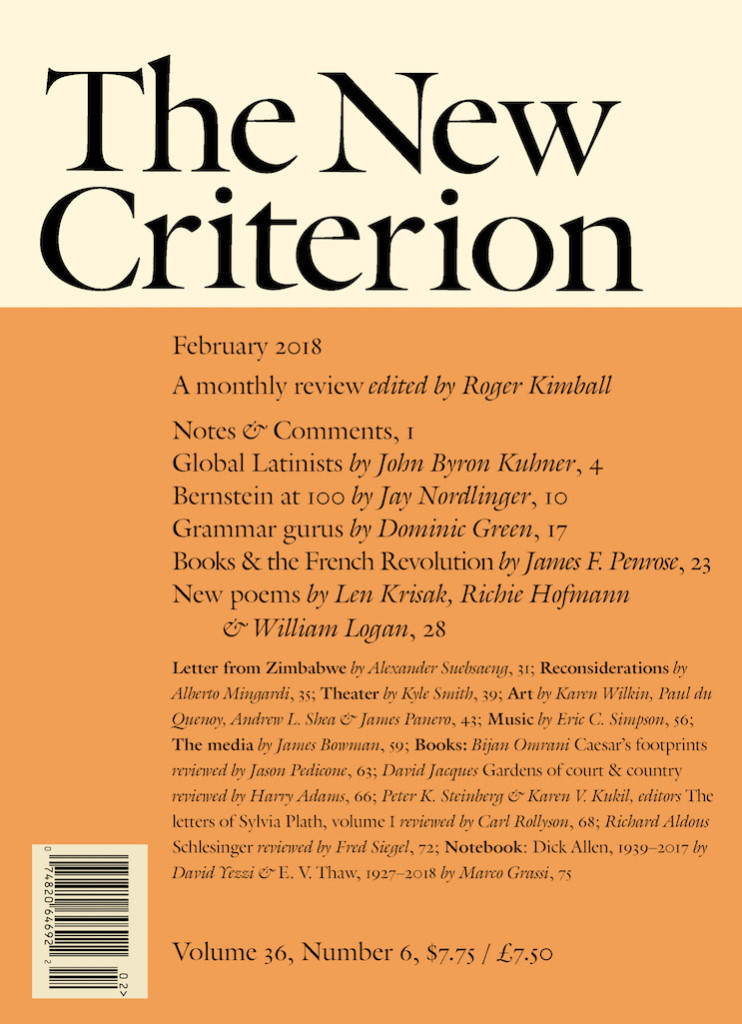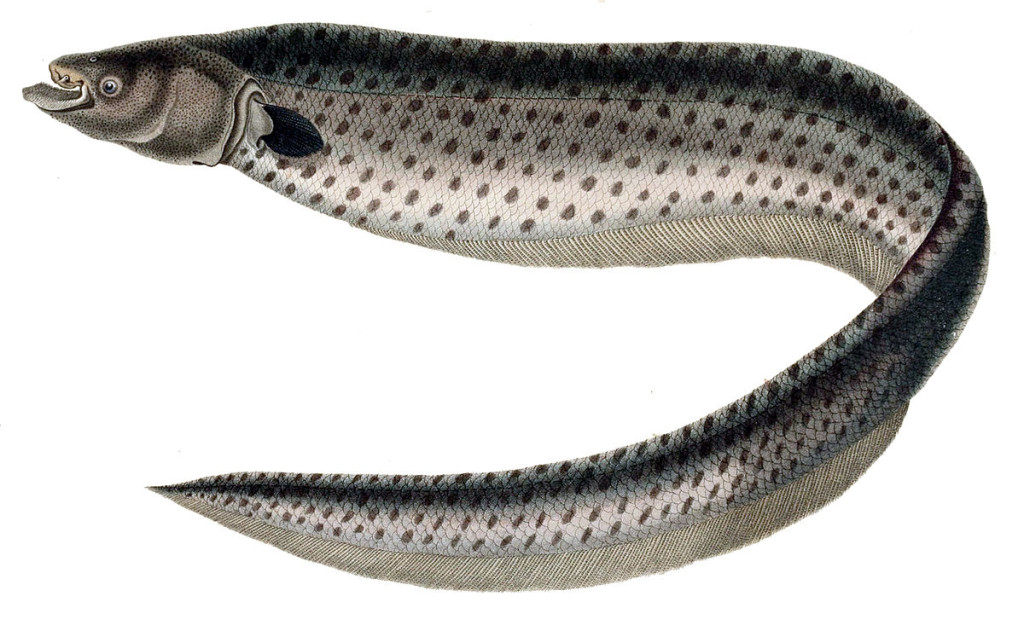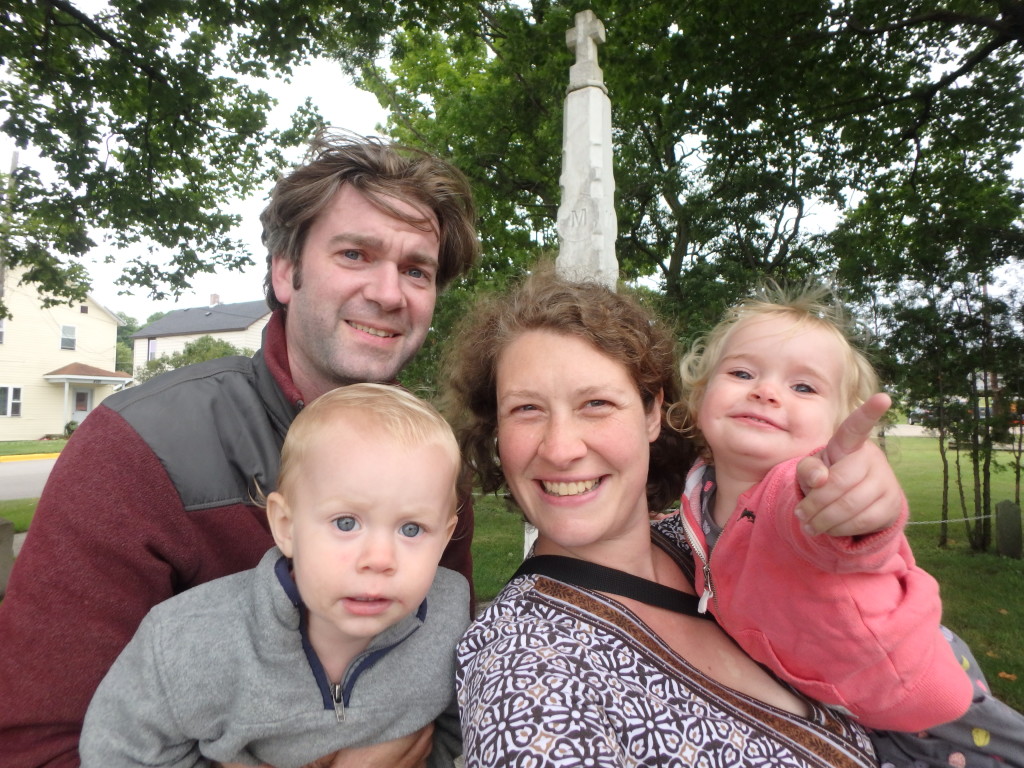 We live in an unusually violent country, and death by firearms shows up in all of our actuarial tables as a relatively common way to die, so it stands to reason that as you go through life you will eventually have friends who get murdered. And my friend Trinh Huynh became one of them. As of this writing, I have available to me only the barest facts: on 7:40 a.m. Monday morning, she was walking along Peachtree Street in downtown Atlanta when a man came up behind her, put three bullets in her back, and ran away. There were other people on the street, whom the man did not kill, so she was apparently his particular target. As this took place downtown, numerous surveillance videos showed the man walking toward the murder scene and later running away from it. No information has been passed down as to why she was targeted, though as we go to trial I presume some kind of motive will emerge. A man with a previous criminal record was taken into custody shortly after the shooting, with the murder weapon in his car. The fact that he seems to have taken little thought about concealment or escape seems to indicate either purpose – he wanted to commit this murder publicly and go to prison for it – or insanity.
We live in an unusually violent country, and death by firearms shows up in all of our actuarial tables as a relatively common way to die, so it stands to reason that as you go through life you will eventually have friends who get murdered. And my friend Trinh Huynh became one of them. As of this writing, I have available to me only the barest facts: on 7:40 a.m. Monday morning, she was walking along Peachtree Street in downtown Atlanta when a man came up behind her, put three bullets in her back, and ran away. There were other people on the street, whom the man did not kill, so she was apparently his particular target. As this took place downtown, numerous surveillance videos showed the man walking toward the murder scene and later running away from it. No information has been passed down as to why she was targeted, though as we go to trial I presume some kind of motive will emerge. A man with a previous criminal record was taken into custody shortly after the shooting, with the murder weapon in his car. The fact that he seems to have taken little thought about concealment or escape seems to indicate either purpose – he wanted to commit this murder publicly and go to prison for it – or insanity.
Trinh was a wonderful, quirky, loving woman, and I’m sure there are people out there saying they can’t imagine such a thing happening to her. I can’t say that; in fact I think that out of all my friends, she was one of the ones I would think would be most likely to get into trouble. This is because she had courage; seemingly infinite supplies of it, and when you meet someone who has it, you realize just how unusual a quality it is. She was tiny, never much more than a hundred pounds, and she went all over the world, and though she was a corporate lawyer and could have travelled however she pleased, she usually Couchsurfed, staying in strangers’ homes. I believe she also did some “woofing,” working and staying on organic farms. “I don’t wanna just stay in some hotel that’s boring,” she would say in her thick Georgia accent that always was so charming given her Asian background, “I wanna do something real. Meet people, do some work, see something different. Those hotels are all the same.” I don’t know how many countries she visited, but it was a lot. On the Internet I see a little tribute to her from a man who met her in La Paz and then ran into her again in Buenos Aires and Ireland. Sometimes hearing about her travels – she went to a lot of places – I would think, “This woman’s crazy she’s going to get herself killed.” She was also not shy. She was the kind of person who would pick on someone who was trying to cut a line. She didn’t put up with anything unfair. This is my nightmare scenario for her death, in fact, that maybe it all just came from a fight she started at Wal-mart or something with the homicidal maniac trying to cut the line: “Hey buddy the line’s over here,” I can see her calling out. “See all these people here? Yeah. They’re waiting, and they were all here before you, so get to the back of the line and wait your turn.”
I first saw Trinh during my first week at Princeton, during an event called the Cane Spree. This was half barbecue, and half barbarism. It had grown out of a barbaric custom which was still maintained: freshman and sophomores would wrestle each other to gain sole possession of a cane placed into their hands. It was the custom for freshmen to step forward first, and then for a sophomore to take up the challenge. Trinh stepped out. As I have said, she was never big, but her eighteen-year-old self looked like a child: she may have weighed eighty pounds then. The crowd cheered and laughed: Tom Thumb had come out as the Champion of the freshman class. The referee looked to a sophomore to answer the challenge. After a few moments, out swaggered a huge woman, a beefy, burly field hockey player, who was more than twice Trinh’s size. The crowd groaned. It was so patently unfair a match, and so unsporting, that it showed in an instant how far Ivy League sport culture had descended: this woman had seen an opportunity for victory, and victory was more important than a fair and fine contest. Trinh herself threw up her arms, and for a second looked as if she would try to melt back into the crowd, but she stopped herself and stayed. There were no rules suspending an unfair match, and so the two women grabbed hold of the cane, and the referee began the match.
What followed was the longest contest of the whole day. That is not to say it was even: it was totally one-sided, in fact. The field hockey player would jerk her arms one way, and send Trinh flying that way, and then jerk her arms the other way and Trinh would go that way. But she could not get her to let go. She dragged her along the ground, through the mud, and then tried a swift jerk to get the cane away, but Trinh’s entire little body would go flying wherever the cane went. She tried to step on her with a foot, and pull her body away from the cane, but Trinh would scoot out from under her feet and kick at her. Once the hockey player made a massive lunge to dislodge the cane and failed, and Trinh responded with a surprise counterassault; the field hockey player’s fingers visibly loosened from the cane, and the crowd, which had mostly been moaning and groaning in pity, went wild with excitement; but the woman’s fingers reclasped the cane just before Trinh made a last-gasp effort to take the cane, using up every ounce of energy she had left. But it wasn’t enough. The other woman got on top of her, buried a knee in her chest, and ripped the cane from her hands. I was surprised Trinh’s arms didn’t come off with the cane.
That fall it was my good luck to be placed in a room of intellectually curious and sociable roommates. One of them, Alex Heneveld, was a math genius, and half the college’s engineers and mathematicians would come to him for help with their problem sets. He was also taking Mandarin, and our room became a hangout spot for anyone in beginning Mandarin as well. Trinh was one of the people taking that class, and one evening, in she walked: that woman from the Cane Spree. Of the people I met, she stood out for her humor, frankness, and general willingness to share. What was not obvious at the time, but would become so, was her loyalty and capacity for friendship: she would be my friend for the rest of her life.
Some of my best memories from my whole life were the weeks after we had turned in our theses, senior year. Trinh would show up at my room with her 200g glow-in-the-dark frisbee, a heavy, long-distance slinger, and we would proceed to Cannon Green where we would throw that thing for hours. She taught me how to throw forehand using an unusual technique which involved flattening the disc against your forearm, which taxed the elbow somewhat but provided a very reliable throwing angle. She was an expert at it herself and it was a real pleasure to see her send that frisbee from one side of the Green to the other. Afterward I heard from the late Bob Fagles that he would watch us in between work on his translation of the Aeneid, from his window overlooking the Green. “Your friend,” he said, “throws beautifully.”
When we got tired we would sit under the ash-trees there and talk. She would look for four-leaf clovers. I would look a bit too, but once I got past about a dozen plants I was done looking and would just want to talk. But she would keep going: “Found one!” she would call out. Usually other people would have joined our little group, people we had intercepted coming from the library or Chancellor Green or Nassau Street, and I would be deep in conversation with them while the hunt for good luck continued. “Look at this one this is a perfect one. Come on now, who else do you know who can find five four-leaf clovers in fifteen minutes? That’s damn impressive if you ask me.”
They’re all gone now – Fagles is gone, Trinh is gone, even the ash-trees, which I think were the oldest trees on campus, are gone now.
I visited Trinh in Atlanta not long after my divorce. “If I ever see that guy,” she said, talking about my ex-wife’s lover, “I will kick him in the balls. I’m serious. Splat. As far as I’m concerned, that’s what he deserves. And if I see your ex-wife, I’ll REALLY kick her in the balls.” I don’t think it would have been very useful in practice, and now I’d really recommend a different course of action entirely, but at the time all I wanted to hear was that kind of loyalty.
I don’t remember if it was on that visit or a previous one when Trinh dropped me off at her mom’s place to spend a few hours there. “I have an errand to go on but you’ve got to meet my mom,” she told me. “She’s gonna love you.” I knew her mom from a very impressive picture that Trinh used to bring with her wherever she lived, of her mother in the center with her five daughters all around. They were all individually very strong people, but the picture of all of them together made it clear just how remarkable a family it was: together they radiated power and vitality.
I thought Trinh’s mom might want to have some long thoughtful conversation with me (what else am I good for, in the end?), but it was otherwise. Trinh vanished to go do her errand and her mom (who spoke English poorly, in fact) dragged me down to the karaoke machine in the basement, where she insisted I sing with her. It was quite a setup down there: she had the karaoke videos and everything, of various Asian couples walking along the beach and riding horses and having candlelit dinners, and the lyrics would come right up on the screen. In the end she determined that Bee Gees songs were my best, and along with a few dozen other selections, we did “How Deep Is Your Love” together about five times before Trinh got back. Trinh had known this would happen, of course, and chortled devilishly to herself as she inquired about her time with my mom. “My mom requires human sacrifice,” she said, laughing. “I have to feed the beast: I have to find her karaoke victims. She’s crazy about it. And with that 80s stuff you do, I was sure she was gonna love you.”
“If you had told me beforehand I could have thought of some good stuff to do a little easier.”
“No it’s all about the element of surprise. You get dragged down to some basement in Georgia with some crazy Vietnamese woman to sing Bee Gees songs, and you don’t know if you’ll ever escape.” She thought this was the most hilarious thing ever, and in fact, it was pretty funny.
Trinh volunteered for the Georgia Asylum and Immigration Network, which provides legal help to immigrants and refugees, especially those who have been the victims of crimes, and when the refugee controversy first flared up a few years ago she was very outspoken about the fact that she felt that this country had room for refugees. She herself had come as a refugee from Vietnam in 1979 when she was three years old, fleeing first to Indonesia where she was held in a refugee camp and then making it to America. A picture taken of her in that camp in Indonesia is just about the cutest thing you could ever see, and she made the point clearly: “’This is the face of a refugee. I am proud of my refugee status. I am thankful for the opportunities this wonderful country has afforded me and my family. I would not be here if the State of Georgia and this country had closed their doors and hearts to my family. I think this great state and the US have more love to give.” She’s right, of course.
The last time I saw Trinh was at a wedding party held at my cabin in August of 2015. She came up from Georgia and wowed everyone with her combination of intelligence, humor, and boldness. “Your friend Trinh,” people came up to me to say, “she’s really cool.” She showed up, pitched her tent in my field, and involved herself in all the details of the party planning, food, music, everything. I always leave the planning til the last minute of course and her help was invaluable. She admired the flowers in my garden and in short order she had made about twenty different flower arrangements which she distributed throughout the property in mason jars. I typically have flowers at my cabin, so I’m used to making arrangements of all sorts, but Trinh did something I had never thought to do in eight years here: she not only used the flowers for the arrangements, but used large quantities of the hay-scented fern which surrounds the house. As soon as I saw how beautiful it looked, I couldn’t believe I had never thought of using them. And no one else had either.
While there, of course Trinh was the life of the party, and into everything. My wife Catherine thinks that pants with zip-off legs are just about the most absurd and funny thing on the planet. I happen to have several pairs of pants like that, which I use for hiking. If it gets too hot, I just zip the legs off. I go through a nettle patch, I zip them back on. Catherine thinks this is ridiculous. I guess zip-pants are never going to become high fashion. Somehow or other Trinh found this out, and seeing that I was wearing these pants, she walked over to me, grabbed my pant leg, called out, “Hey, Catherine, look at this!” and proceeded to zip and unzip the pant leg over and over again, saying “Whoah, so cool!” Catherine was so pleased that someone else had thought these pants were notably absurd, and Trinh just laughed and laughed.
Trinh brought me a lovely wedding present: a pair of brand-new frisbees. Someday my kids are going to learn to throw them the way Trinh threw. But I know that all the little things we do to keep alive the memory of the dead in the end do not add up to the original sum; and in all these instances, I fall back on religion, and the dearest hope of thinkers of all ages, that the Power which produced all these lives may be able to restore them. Until that day, I am just left with a sense of how criminal it truly is to take a life in this way; how terrible it is that man should destroy something he cannot by all his exertions ever bring back.
I’ll be heading down to Atlanta this weekend, to celebrate her life. She was a beautiful woman and a beautiful friend.




The Journals of Jean Sibelius.
21-Oct-17At a certain point in my college career I stopped worrying very much about my classes, and decided to get my education directly from the university library. One of the books I read at the time was Erik Tawaststjerna’s monumental three-volume biography of Sibelius. I often find that great musicians can also write, but Sibelius particularly amazed me. The excerpts from Sibelius’s diaries quoted in the book formed one of the most sensitive, eloquent, and accurate depictions of the inner life of an artist I had ever seen. They still strike me that way; and I truly believe that at some point a slim little volume of Sibelius writings on the life of an artist would be most welcome. They capture both the divine exultation of inspiration, and the acute despair of the fundamental inner artistic emptiness which drives it all. Plus all the usual problems with family, self-doubt, critics, and (of course) money. Sometimes the emotional extremes become funny – funnier even when the dates are put in (these alas lack dates), because you see that he can go from believing himself a god to hating everything about the universe in a single day.
“A wonderful day. Have forged a little but dreamt of even more. The atmosphere this evening was magical, but – always when stillness speaks there are dreadful overtones, the terrifying creatures of eternal silence.”
“My domestic harmony and peace are at an end, because I cannot earn enough to supply all that is needed, let alone pay off my debts. I find it impossible to harmonize what is right for me as an artist, with a necessity to produce income. Take for example my second symphony. It has brought fame and credit to Finland on countless occasions but it cost me 18,000 marks to produce it, and I’ve earned from it only 1,500. My debts mount with every symphony. Surely I was not sent into this marvellous world just to pay off debts.”
“I no longer feel at home in the city; my solitude begins. But the strongest and deepest feelings come to me when I’m alone. I’m at work on the development of the first movement, trembling. The fourth will be a psychological symphony. A symphony is not a composition in the ordinary sense of the word. It is more an inner confession at a given stage of one’s life.”
“The miracle that I am waiting for will never take place. I crossed out the whole of the development. I cannot work properly. Why these empty moments? I suffer so much that my heart bursts in my chest. Where do they come from, these tensions of the spirit, and the pain?”
“Fashioned the second part, marvelous day. Poetic. Life is waiting, this wonderful life that I love so much and which is yet so difficult to live. Don’t lose the sense of life’s pain and pathos, listen to your own inner voice and go your own modest but sure way. You won’t be any the worse for that. May I just live long enough! – for now I’m sure of my artistic path.”
“The fourth symphony is breaking through the clouds in sunlight and power, the Himalayas again. Everything bright and strong. Worked like a giant, the compulsion, the compulsion to write what is ultimately and forever right.”
“Always I’m alone. Alone at home, alone in Helsinki restaurants, alone on the road and alone on the train, alone. Wherever I turn it is black. But nevertheless I would not change with anyone. I worked with appalling effort – a life and death struggle with the symphony. I wonder how the third movement will work itself out, everything is in chaos and I need to concentrate. Lived in the illusions of youth. In the evening, a wonderful atmosphere – marsh mists and the gentle breeze.”